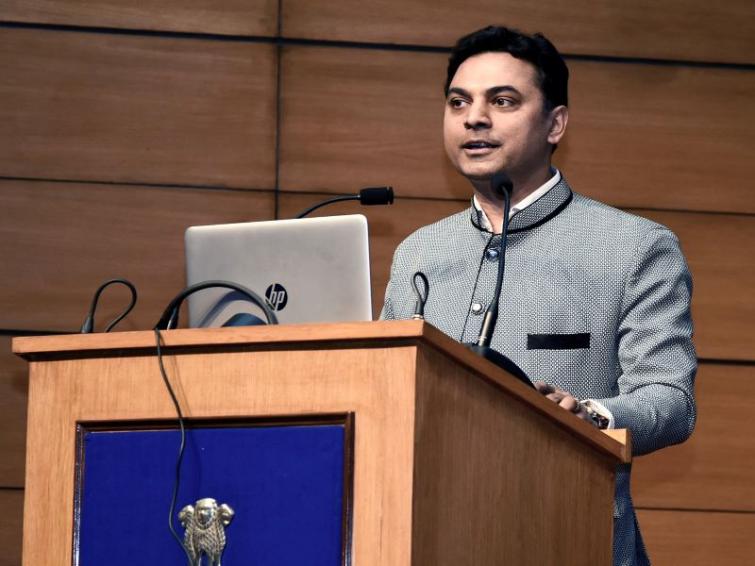
After reaching the lowest point, Indian economy to revive from here: Chief Economic Adviser
New Delhi/IBNS: Chief Economic Adviser KV Subramanian on Friday expressed hope that the Indian economy will start growing after hitting the bottom while predicting a growth of 6 to 6.5 per cent growth for the 2020-21 fiscal year.
However, the National Statistical Organisation (NSO) in its first advanced estimates predicted GDP growth of 5 per cent, which is the lowest in the last 11-years.
The Indian growth story suffered a set back amid a weak environment for manufacturing, trade and demand, he said while addressing the press on Economic Survey 2019-20.
The economy will start picking up in the second half of the next fiscal, which is indicated by NSO's prediction.
The improvement in economy will be driven by the revival to rise in Nifty India Consumption Index, positive outlook for rural consumption, higher FDI flows, an upbeat secondary market, rebound of industrial activity, growth in merchandise exports, steady improvement in manufacturing, higher build-up of foreign exchange reserves, an upbeat secondary market, build-up of demand pressure and positive growth rate of GST revenue collection.
The Survey stated that the merger of public sector banks will boost growth of the merged entities, reduce risk aversion and reduce lending rates.
With the better implementation of GST, there will unification of domestic markets which will bring down business costs and facilitate fresh investment. Land and labour market reforms are also expected to cut down business costs, the survey noted.
Support Our Journalism
We cannot do without you.. your contribution supports unbiased journalism
IBNS is not driven by any ism- not wokeism, not racism, not skewed secularism, not hyper right-wing or left liberal ideals, nor by any hardline religious beliefs or hyper nationalism. We want to serve you good old objective news, as they are. We do not judge or preach. We let people decide for themselves. We only try to present factual and well-sourced news.







